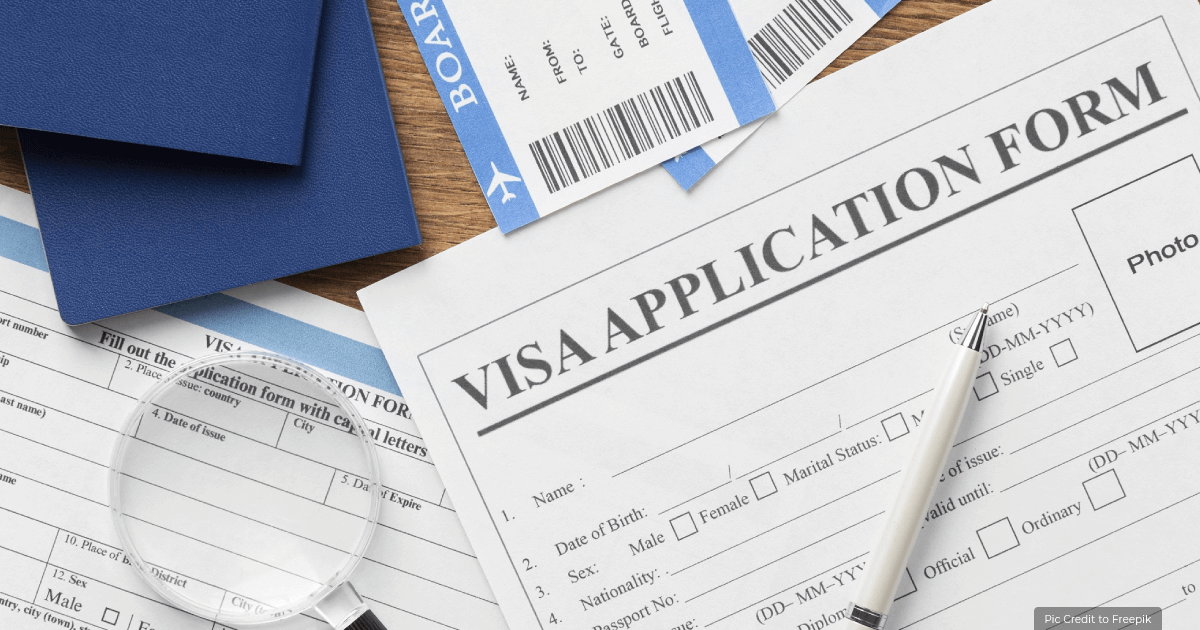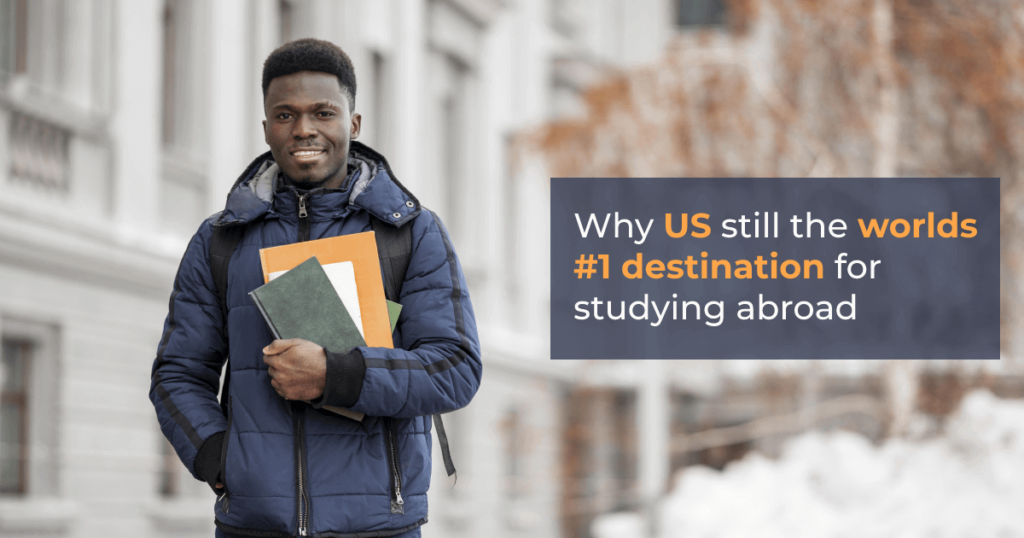Reasons for US Student Visa Rejection 2024 – The US is a very popular destination for international students, but the process of applying for a student visa can be daunting. Unfortunately, many students are denied visas every year. In this blog post, we’ll explore some of the most common reasons for US student visa rejection. By understanding the reasons why visas are denied, you can increase your chances of being approved for a student visa in the future.

Reasons for US Student Visa Rejection 2024
Lack of Financial Documentation
For those who do not have their financial documentation in order, this can be an overwhelming time. Without access to better information, it can be difficult to make sound financial choices when it comes to large purchases or investing. Having good records of income and expenses is key to managing your finances;
You should also keep track of any tax liabilities or other legal issues that could pop up and complicate your situation. Establishing healthy budgeting habits and creating a financial plan can help you stay on top of your ongoing bills as well as future savings goals. With the right approach, proper financial documentation can set you on the path towards greater financial security.
Insufficient ties to home country
Living abroad is becoming more and more popular for individuals for various reasons; however, feeling too far away from their home country can be a challenge. Not only does this involve being physically further away from family and close friends but also missing out on experiencing the culture in their home country.
This could include not being able to understand the language or even feel connected to cultural events. Even if someone is living elsewhere, it is important to make sure that there is still a viable connection with the home country, whether it’s keeping up with news outlets or attending community gatherings when available. Having these connections will ensure that an individual has enough insight into the culture of their home country and stays in touch with their roots even when they are far away.
Prior visa denials or immigration violations
Immigrating to another country, whether as a temporary worker, student or permanent resident, can be a lengthy process when prior visa denials or immigration violations are found in an individual’s record. Depending on the severity of the violation, an applicant may not be able to reapply for visas in the future. It can also hinder their chances of being approved for a visa at all.
Doing research before beginning the immigration process is important and will help determine whether any potential issues need to be addressed first. Not adhering to immigration laws and requirements could lead to serious consequences, imprisonment or even deportation. It is essential to understand these laws and take great care in following them throughout the process.
Check out this video to find out the reasons in detail.
Ineligibility for the chosen program of study
Pursuing a chosen program of study can be exciting, but at the same time it is important to remember that not everyone is eligible for such programs. One benefit of being aware of program ineligibility criteria is that it prevents you from wasting your time applying for something you will ultimately not be accepted into.
Eligibility factors usually include one or more of the following: existing academic credentials, relevant professional experience, meeting age requirements, completing compulsory assessments and/or submitting necessary documents which might include references or portfolio pieces. Paying close attention to the finer details on eligibility matters during research for a potential program helps ensure that an individual enters the application process having met all requirements needed to qualify for it.
Failure to meet English language requirements
Failing to meet English language requirements can lead to disappointing consequences and feelings of discouragement in someone’s academic or professional journey. For many students, a lack of fluency in the English language can act as an obstacle, standing in the way of successful admissions and job opportunities.
Fortunately, there are a variety of resources available which may help would-be learners increase their proficiency so they can overcome any hindrances posed by not being fully conversant in English. Coaching programmes, online courses, self-study materials and other options allow those who have fallen short of their language objectives to brush up their knowledge and confidence. With hard work and dedication, meeting English language requirements is an achievable goal for anyone who is determined to succeed.
Unclear Purpose of Travel
Traveling without a clear purpose can leave travelers feeling unfulfilled and aimless at their destination. While there is beauty in spontaneity, it is still important to have a plan when traveling. Having a clear objective or idea of what one wants to get out of the experience will make other aspects, such as finances and accommodations, much easier to plan for.
A traveler who has not thought these points through can quickly find themselves overwhelmed with stress and lack the resources to reach their goals. Taking some time beforehand to outline intention and objectives will increase the likelihood of having meaningful experiences while satisfying financial and accommodation needs.
Conclusion
There are many reasons why study visa applications are denied. The most common reason for a denial is lack of financial documentation. Other reasons can include insufficient ties to the home country, prior visa denials or immigration violations, ineligibility for the chosen program of study, failure to meet English language requirements, or unclear purpose of travel. If you are applying for a study visa, be sure to have all your required documentation in order and be prepared to explain your situation clearly to avoid any potential problems.
FAQs about Reasons for US Student Visa Rejection
1. How many attempts are required for US student visa?
The US Department of State does not specify the number of times a student visa applicant may be permitted to apply for a visa. Generally speaking, however, applicants will have the best chance of success if they can demonstrate that their circumstances have changed since any prior applications were denied or unsuccessful. Each applicant’s situation is unique, so it is important to consult with an immigration attorney or other qualified professional for specific advice about the application process.
2. How can I increase my chances of getting a US visa?
There are a few key ways to increase your chances of getting a US visa. First, make sure you have all the necessary documents and requirements for the application process. This includes having valid academic qualifications, sufficient financial evidence, strong ties to your home country, and meeting any relevant language or age restrictions.
Additionally, research the visa requirements thoroughly and be prepared to discuss your plans and purpose for traveling in detail. You will also want to ensure that any previous visa applications or denials are addressed and provide an explanation as to why you are a better candidate now than before. Finally, be sure to plan ahead and submit your application early, as this can help with avoiding potential delays.
3. How can we avoid F1 visa rejection?
The best way to avoid F1 visa rejection is to ensure that you are fully prepared for the process. Start by making sure you have all the required documents and evidence of financial support. Additionally, research the visa requirements thoroughly and make sure you can explain your plans clearly. Make sure any previous visa applications or denials have been addressed, and provide an explanation as to why you are a better candidate now than before. Finally, plan ahead and submit your application early so that you can avoid potential delays. Additionally, if English is not your primary language, make sure you demonstrate proficiency in the language and meet all applicable language requirements. Doing so will increase your chances of success with your F1 visa application.
4. What percentage of F1 visa gets rejected?
The exact percentage of F1 visas that are rejected varies, depending on the individual applicant and their circumstances. In general, however, most people who apply for an F1 visa will be approved as long as they meet all of the requirements and can demonstrate that they have a valid purpose for their travel. The US Department of State does not specify an exact rejection rate for F1 visas, but it is estimated to be between 5 and 20%. To ensure you have an optimal chance of success, make sure to have all the necessary documents and evidence in order, answer questions thoroughly, and plan ahead.
5. Can I apply for f1 visa after rejection?
Yes, you can apply for an F1 visa after being rejected. However, this becomes important to make sure that your circumstances have changed since the rejection so that you can demonstrate why your application should be approved this time around. Additionally, it is crucial to ensure all documents and requirements are in order before submitting a new application. If your application was rejected due to insufficient financial evidence, make sure to have adequate funds and/or a financial sponsor letter ready before reapplying. Finally, it is wise to consult with an immigration attorney or other qualified professional for specific advice about the application process.
6. What to do if F1 visa is rejected?
If your F1 visa is rejected, the best course of action is to review the reasons behind the rejection. In some cases, you might address any issues and reapply as soon as possible. Alternatively, you may want to wait several months before reapplying if your application was denied due to insufficient financial evidence or other factors that cannot be resolved quickly. Either way, it is important to consult with an immigration attorney or other qualified professional for specific advice about the application process. Additionally, you may want to consider applying for a different type of visa in order to travel to the United States while waiting for your F1 visa application to be approved.





